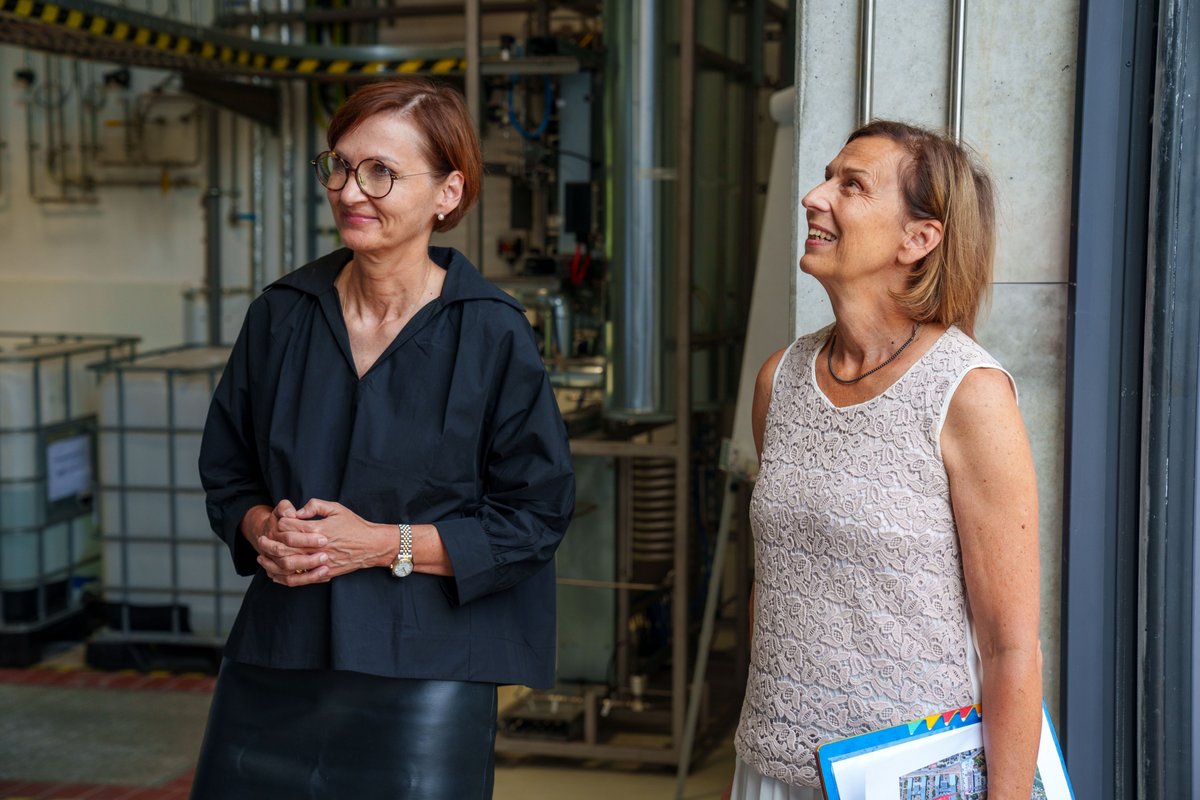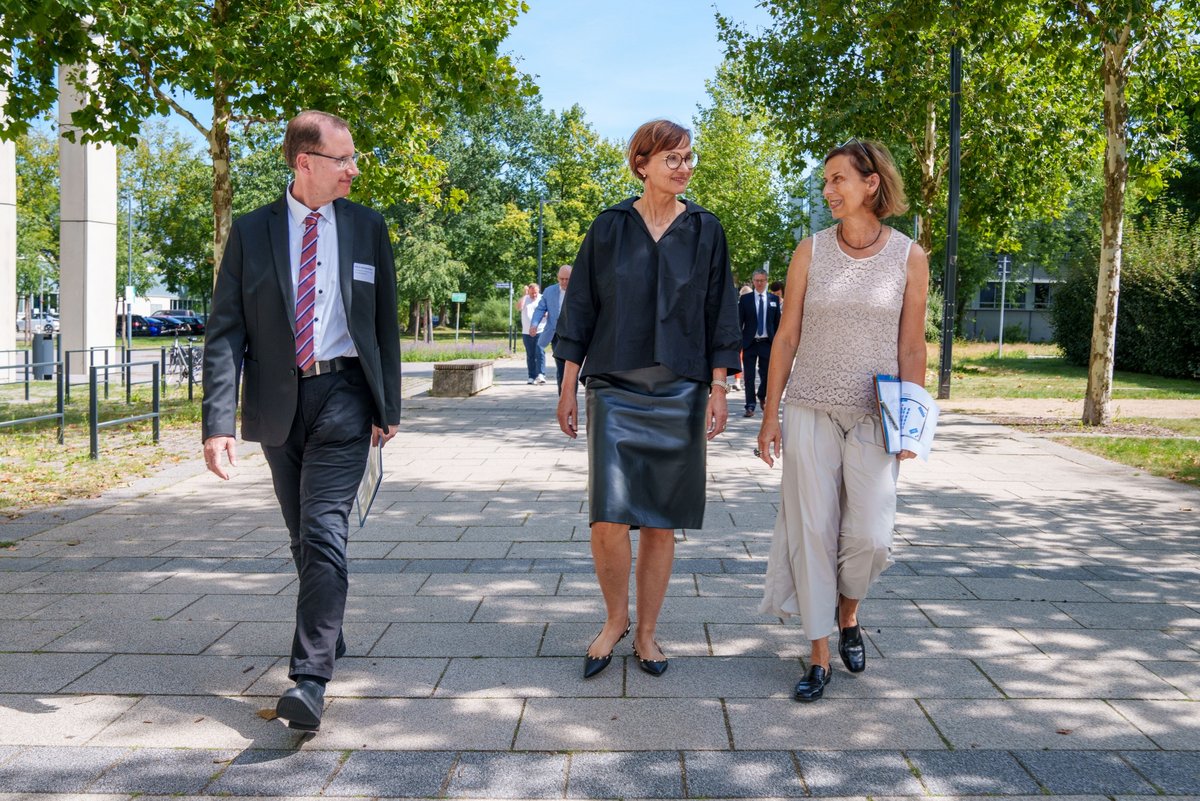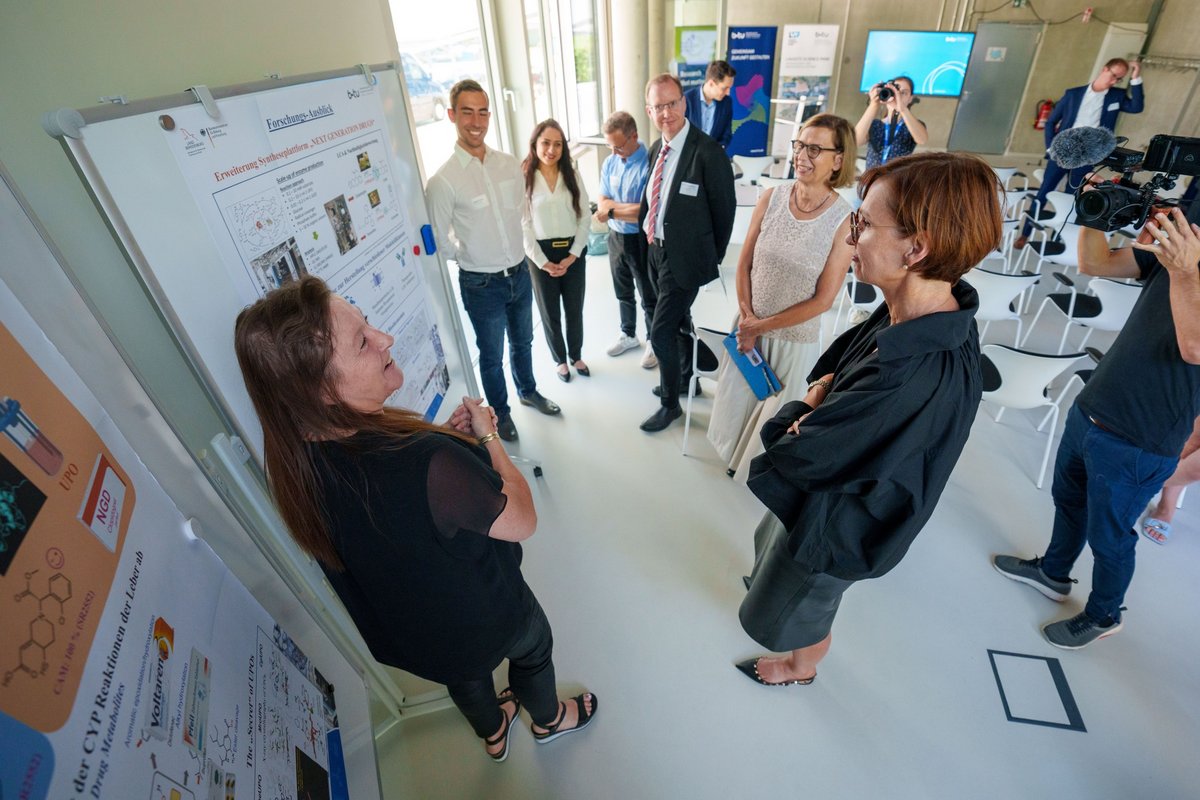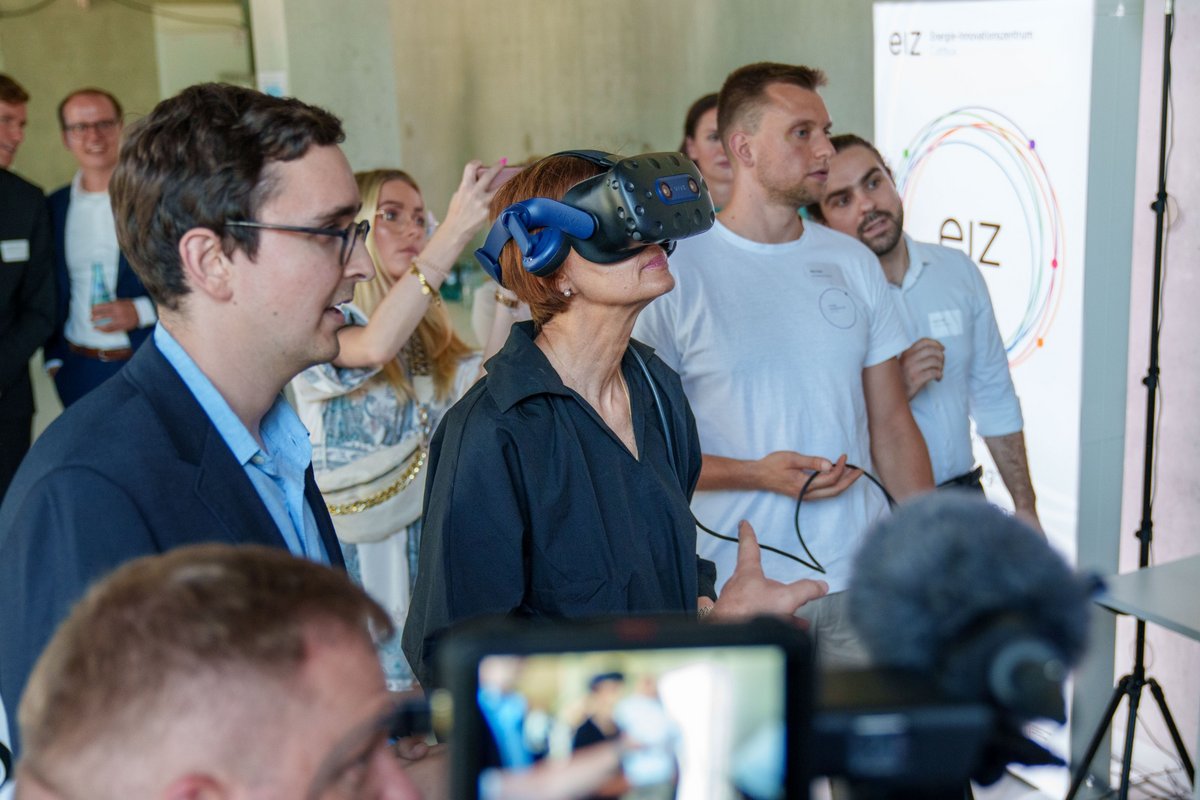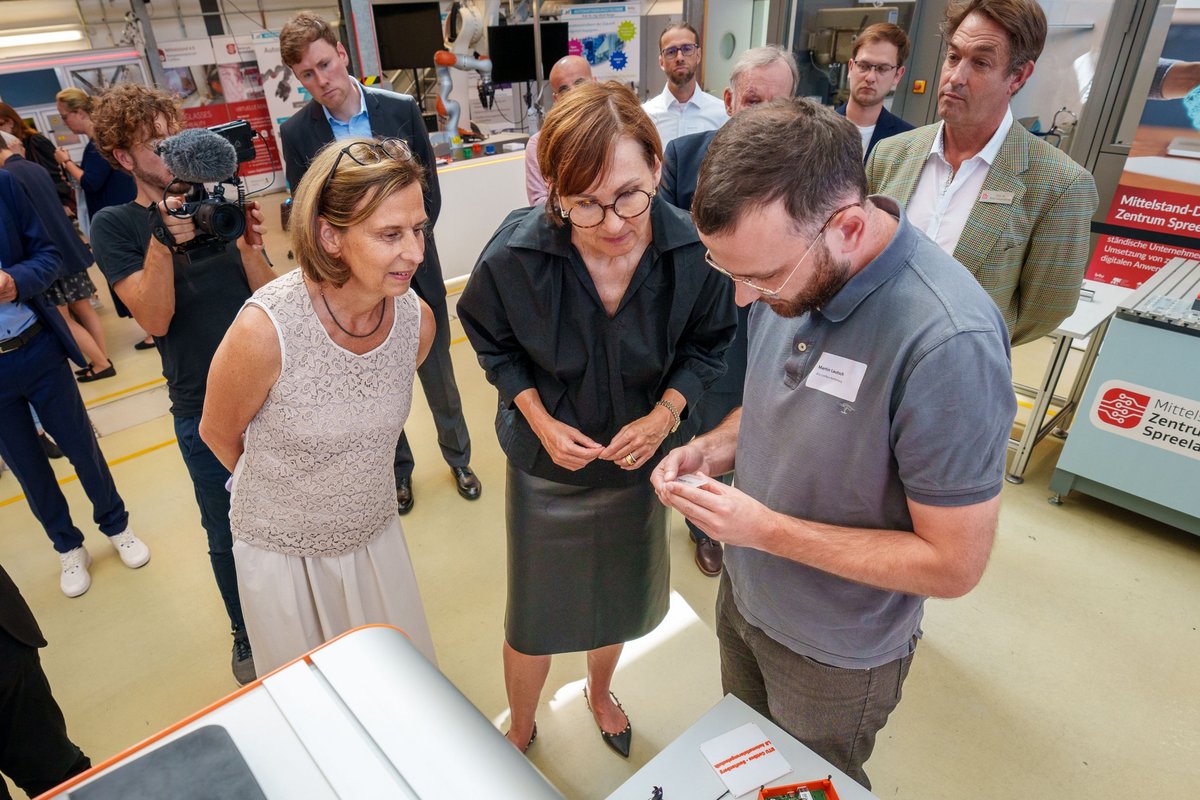"Global perspective and regional commitment"
Welcomed by BTU President Prof. Dr. Gesine Grande and Prof. Dr.-Ing. Michael Hübner, Vice President for Research and Transfer, the minister was given an insight into the university and its role in the structural change of Lusatia as well as activities such as the Lusatia Science Park and the Lusatia Science Network at the Cottbus main campus. Bettina Stark-Watzinger then found out about three large collaborative projects funded by the Federal Ministry of Education and Research: the Energy Innovation Center, the iCampus Cottbus and the "Next Generation Drugs" research network based at the BTU Senftenberg site.
Bettina Stark-Watzinger, Federal Minister of Education and Research:
"During my visit to the BTU in Cottbus today, I was able to see for myself the great dynamism that research and innovation can bring to structural change in Lusatia. The Lusatia Science Park is a flagship project for innovation and research in the Lusatian mining area and a good example of how coal regions can increasingly distinguish themselves as sustainable research and innovation locations. The regional networking of science and industry is an important building block in enabling transfer and developing and establishing competitive value creation structures."
Prof. Dr. Gesine Grande, President of BTU Cottbus-Senftenberg:
"At BTU, we combine a global perspective with a regional commitment. The three major structural change projects that we presented today during the visit of the Federal Minister of Education and Research demonstrate this impressively. Together with our partners from science and industry, we are working in these projects on a new generation of medicines, on the energy supply of the future and on the use of microsensors in various fields of application. In this way, we are ensuring the development of the science location and sustainable regional development. We would like to thank the Federal Ministry of Education and Research for its great support in providing the considerable amounts of funding as part of the Structural Strengthening Act."
Next Generation Drugs
The "Next Generation Drugs" (NGD) research network combines bio-based technology developments, biomedical research and sustainable bioeconomy in a unique way in order to successfully implement the structural change goals in the former coal-mining region of Lusatia. NGD is an essential component of the BTU profile line "Health and Life Sciences" at the university location Senftenberg. The aim is to produce the world's first effective liver metabolites from drugs in vitro biocatalytically, test them pharmaceutically and formulate them sustainably as "next generation drugs". In addition to BTU research groups, the Fraunhofer Institute for Cell Therapy and Immunology - Bioanalytics and Bioprocesses IZI-BB and the Fraunhofer Institute for Applied Polymer Research IAP are involved as cooperation partners.
Energy Innovation Center
Under the motto "Regional focus, global impact: innovative solutions for the energy transition", the Energy Innovation Center (EIZ) at BTU Cottbus-Senftenberg has established itself as a successful research center over the last two years. As a bridge between science and industry, over 70 scientists are working together with more than 50 companies and non-university research institutions to develop innovative solutions and technologies for a climate-neutral energy supply in Lusatia and worldwide. The focus is on technical as well as economic, political and social issues relating to the energy transition with special reference to structural development in Lusatia. The EIZ focuses on outstanding, internationally visible research, industry-related, product-oriented technology development as well as training and further education opportunities for business and science.
iCampµs Cottbus
The "Innovation Campus Electronics and Microsensor Technology Cottbus (iCampµs)" focuses its work on the increasingly important field of microsensor technology. The range of applications for the "sensory organs of digitalization" is extremely broad. However, as wide-ranging as the field of application of microsensors is, the requirements for their functionality and performance profile are in most cases very different. "Off-the-shelf" solutions do not meet the requirements, especially for special applications such as in the areas of smart health or smart farming. Instead, application-specific solutions must be developed in close cooperation with the users. The Innovation Campus aims to identify these needs and address them by bringing together the expertise of the university and non-university research institutions in such a way that the Transfer of Knowledge and Technology leads to sustainable innovations in the region.
Press contact
Kommunikation und Marketing
T +49 (0) 3573 85-283
ralf-peter.witzmann(at)b-tu.de

